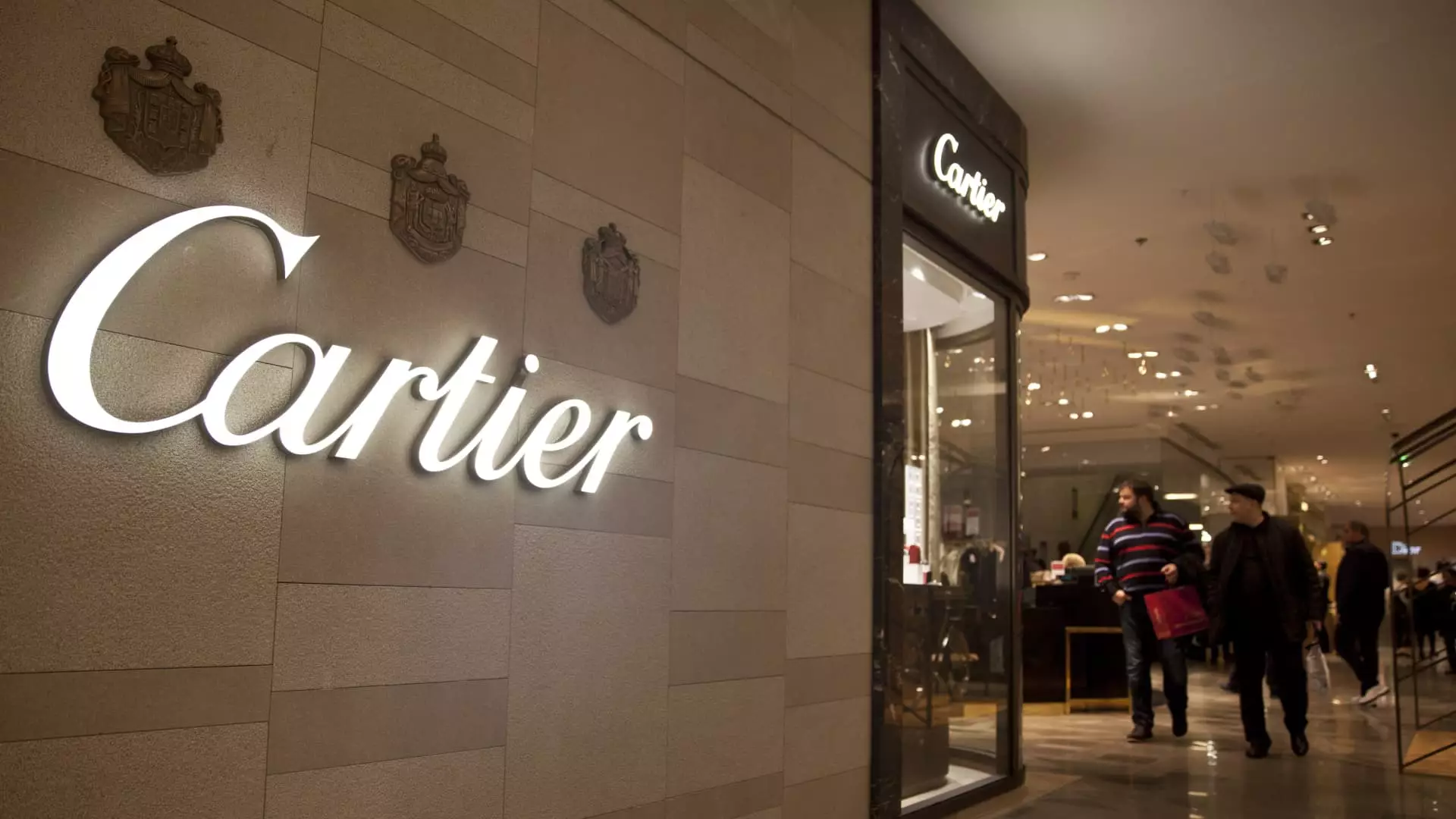The recent announcement from Richemont, the owner of the prestigious Cartier brand, has sparked a renewed optimism in the luxury retail market. Following a reported 10% increase in fiscal third-quarter sales, reaching €6.2 billion ($6.38 billion) at constant exchange rates, the luxury group has positioned itself as a beacon of resilience amid ongoing global economic fluctuations. This remarkable achievement, which the Swiss company heralded as its “highest ever” quarterly sales, starkly contrasts the modest 1% rise predicted by analysts, reflecting an unexpected but welcome performance. Richemont’s shares surged by an impressive 17.15% shortly after the announcement, signaling investor confidence and sparking growth among other luxury brands like Christian Dior, LVMH, and Hermes.
Despite the overall expansion, not all regions shared in the prosperity. Richemont’s sales results were uneven, particularly in the Asia-Pacific region, which saw a 7% decline. This downturn was largely driven by an 18% drop in mainland China, Hong Kong, and Macau—a troubling sign for a region that has historically been a linchpin for luxury growth. The lingering impacts of the post-Covid-19 economic climate in China have seemingly curtailed spending on luxury goods, underscoring a significant challenge that Richemont and other luxury brands face. The disarray in this specific market segment highlights the vulnerability of luxury brands to geopolitical and economic shifts, suggesting that while some regions prosper, others continue to grapple with setbacks.
Richemont’s stock has experienced significant volatility in recent times, paralleling broader trends in the luxury goods market. The company’s share price saw a notable uptick following the appointment of Nicolas Bos as CEO in May, a former head of the Van Cleef & Arpels brand. His leadership appears to have reinvigorated investor sentiment, leading to a year-to-date share price increase of 28.75%. However, this volatility reflects not only internal management changes but also the broader economic climate affecting luxury markets worldwide. As Richemont seeks to stabilize and capitalize on recent successes, the stock’s movement serves as a reminder of the challenges inherent in maintaining investor confidence in uncertain times.
The latest figures represent a significant comeback for Richemont, particularly after the company reported a slight 1% dip in sales during the first half of its fiscal year, attributing the downturn to challenging macroeconomic factors and particularly tough conditions within China. In contrast to the prior year, when Richemont had been an outperformer amidst a luxury segment downturn, the recent results signal a potential turning point. Analyst Luca Solca from Bernstein remarked on the positive implications for the wider luxury sector, suggesting that this upswing aligns with a broader recovery trend in regions outside greater China. With Europe and Asia-Pacific (excluding greater China) demonstrating rising domestic demand and increased tourist inflows, the groundwork appears to be laid for a rebound in luxury consumption.
Looking Ahead: Cautious Optimism
As the luxury sector navigates these turbulent waters, the results reported by Richemont serve as a beacon of hope. They provide not only a snapshot of the company’s financial health but also broader narratives regarding consumer behavior and market dynamics in a post-pandemic world. Analysts remain cautiously optimistic, interpreting third-quarter results as an indicator that may suggest the worst has passed for Richemont and potentially for the wider luxury market. Yet, with fluctuating conditions in Asia and various uncertainties looming over the global economy, maintaining this positive trajectory will require careful management and strategic agility.
While Richemont’s latest performance showcases a promising recovery phase, it also encapsulates the multifaceted challenges that luxury brands must continuously confront. The path forward will necessitate a fine balance between seizing growth opportunities and navigating the complexities of a global marketplace undergoing profound transformation.

